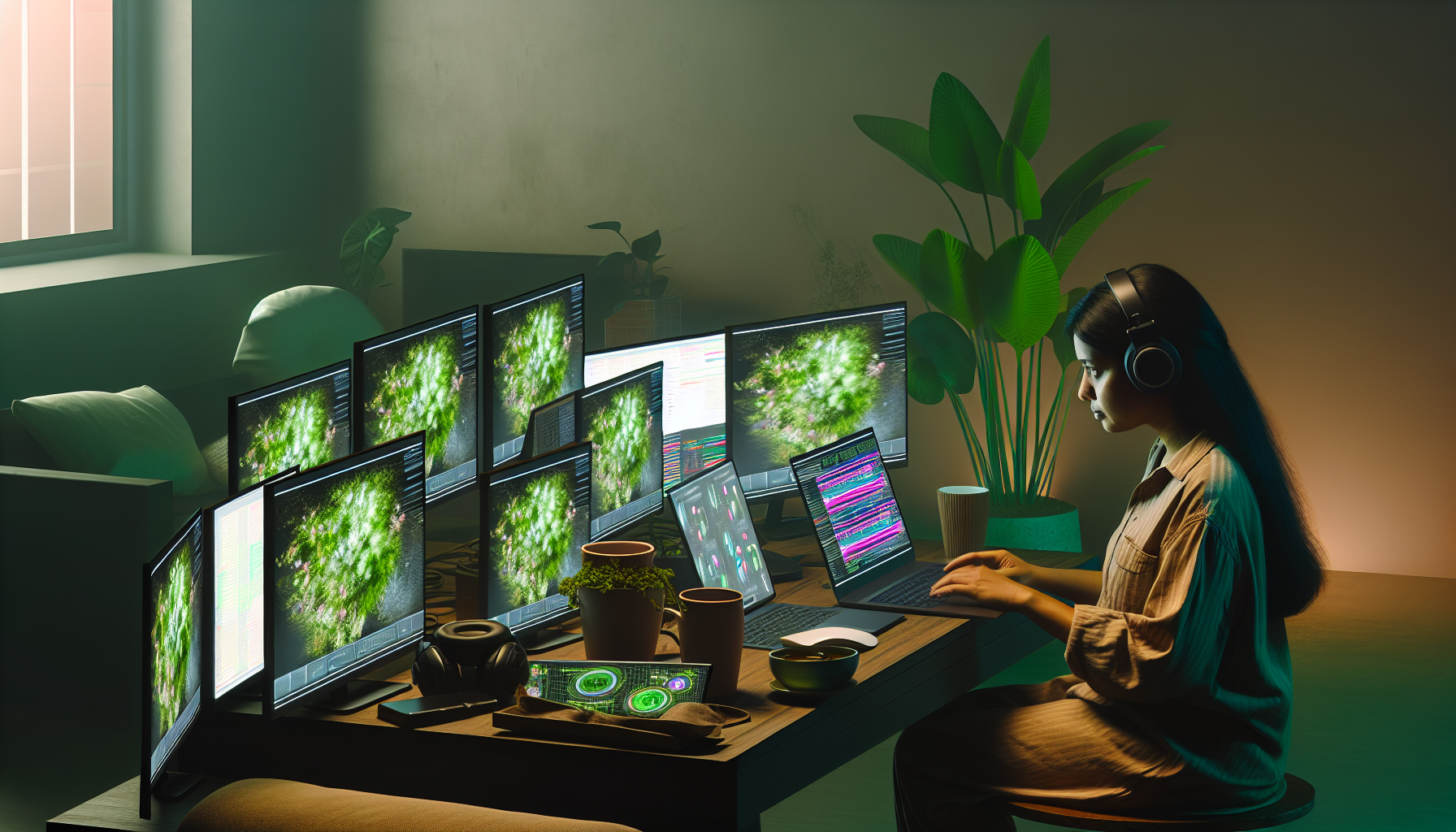Picture this: you’re working on a beachfront café in Bali one moment, and the next, you’re chasing deadlines in a bustling coworking space in Tokyo. As a digital nomad, the world is your office – exciting, right? But amidst the constant change and unending stimuli, how do you stay focused and avoid burning out? Let’s dive into the nitty-gritty of dealing with overstimulation as a digital nomad.
Key Takeaways:
- Recognize and understand the symptoms of overstimulation.
- Create a structured daily routine to maintain a balance.
- Practice mindfulness and self-care regularly.
- Establish a designated workspace, even when on the go.
- Stay connected to a support network and seek help when needed.
Recognize the Symptoms of Overstimulation
Overstimulation can sneak up on you when you least expect it. You might feel constantly tired, have trouble concentrating, or feel irritable for no reason. Recognizing these symptoms early can save you from prolonged stress.
“It’s crucial to listen to your body and mind’s signals,” says Dr. Susan Biali Haas, wellness expert and author. “Pushing through overstimulation can lead to burnout.”
Create a Structured Daily Routine
Being a digital nomad often means your typical 9-to-5 is out the window. Yet, having a structured routine can be a lifesaver. Start your day at the same time, schedule regular breaks, and set aside time for leisure activities.
Example Routine:
- Morning: Yoga or meditation, followed by a healthy breakfast.
- Mid-Morning: Dedicated work time.
- Midday: Lunch and a short walk.
- Afternoon: More work, ending with a relaxing activity like reading or a hobby.
- Evening: Social time or exploring the local area.
Practice Mindfulness and Self-Care
Mindfulness practices can significantly combat the overwhelming feelings of overstimulation. Meditation, deep breathing exercises, and journaling are excellent ways to keep your mind serene.
“Mindfulness is not about controlling your thoughts, but understanding that they do not control you,” shares Jon Kabat-Zinn, mindfulness expert and creator of the Stress Reduction Clinic at the University of Massachusetts Medical School.
Establish a Designated Workspace
No matter where you are in the world, create a workspace that is solely for work. It helps your brain switch into ‘work mode,’ making it easier to focus and separate work from play.
Here’s a quick comparison of potential workspaces:
| Workspace Type | Pros | Cons |
|---|---|---|
| Café | Lively environment, good ambiance | Noise and distractions |
| Coworking Space | Professional environment, networking | Membership fees |
| Hotel Room | Quiet and private | Limited social interaction |
| Outdoor Space | Fresh air and inspiration | Weather-dependent, possible distractions |
Stay Connected to a Support Network
Sometimes, you just need someone to talk to who understands the unique challenges you face. Whether it’s a fellow digital nomad, family, or friends, having a support network is crucial. Joining online communities or local meetups can provide the emotional and professional support you need.
Living or Experiential Tips
- Experiment with various relaxation techniques to see what works best for you.
- Use noise-canceling headphones to block out distractions.
- Limit your screen time outside of work hours to avoid digital burnout.
- Schedule regular downtime in your calendar to ensure you get it.
- Don’t shy away from professional help if you feel constantly overwhelmed.
Summing it all up, dealing with overstimulation as a digital nomad boils down to recognizing the signs, implementing structure, and prioritizing self-care. Remember, this adventure is not just about working from various exotic locations, but also enjoying the journey along the way. Keep exploring and don’t forget to breathe!
For those looking to dive deeper, here are some resources to explore:
FAQ
1. What are some common signs of overstimulation for digital nomads?
Common signs include constant fatigue, trouble concentrating, irritability, headaches, and a general sense of overwhelm.
2. How can digital nomads create a structured routine while traveling?
Digital nomads can create a structured routine by maintaining regular wake-up times, scheduling work and leisure activities, and setting goals for each day.
3. Is it possible to find a work-life balance as a digital nomad?
Yes, it’s entirely possible. By establishing a daily routine, setting boundaries between work and leisure, and practicing self-care, digital nomads can find a healthy balance.
By following these strategies and tapping into these valuable resources, digital nomads can better manage overstimulation and truly thrive in their unique lifestyle. Happy travels!
